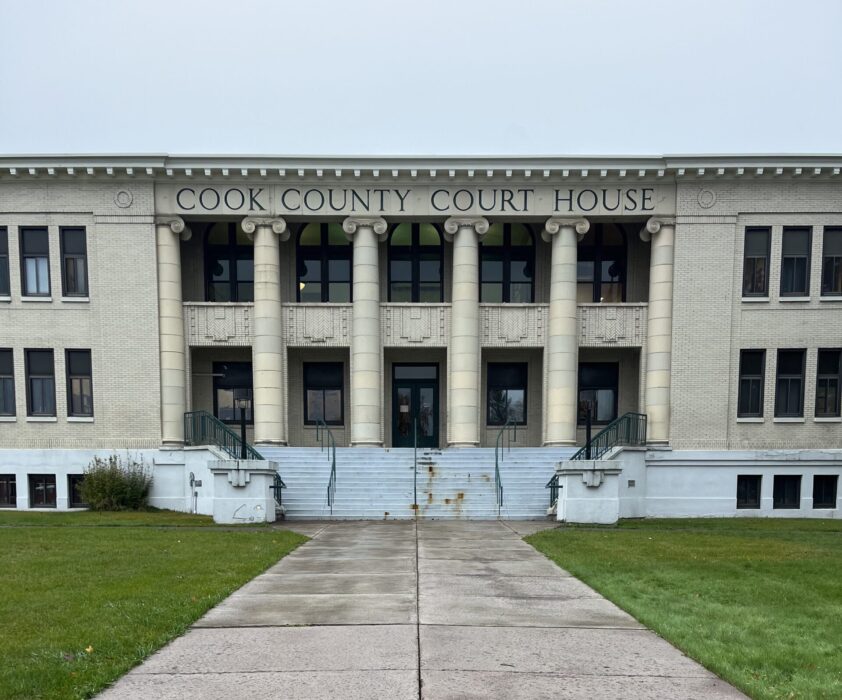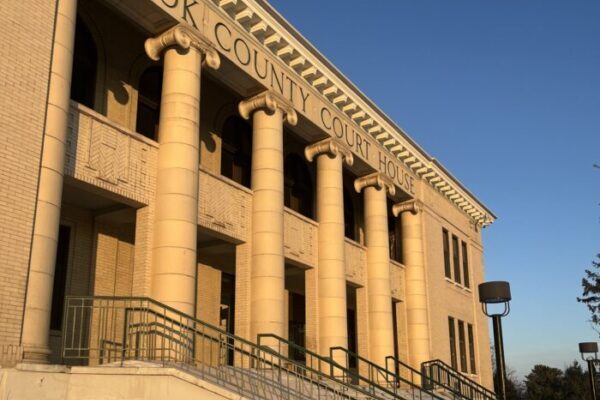County board enters final weeks of 2026 budget talks
With the year nearing its end, the Cook County Board of Commissioners is slated to spend the next several meetings focused on finalizing the budget for 2026.
Moving toward a final 2026 budget
The board approved a preliminary levy increase of 7.57% earlier this year, and will need to approve a final version before the end of the year.
In past years the board has set a goal of keeping the levy increase near or below the roughly 7% point. Last year the board began with a 9.81% levy increase, which they subsequently dropped to 7.68%, and then down to 5%. Administrator Kristen Trebil-Halbersma said the board had not indicated yet whether they had a specific levy increase number in mind, but that they would discuss the question over the next few meetings.
The Nov. 12 board packet included several documents related to budgeting, including a breakdown of non-mandated funding history and a rudget reduction analysis. Both were presented to the board as they consider what additional changes they might make to the 2026 budget.
Trebil-Halbersma said the budget reduction analysis, which asked department heads to identify where they could potentially reduce their spending by 5%. She said the exercise was requested by a commissioner during a previous Committee of the Whole meeting, and that it was a relatively typical way for organizations to gather information during times of “challenging” budgets.
“That exercise, I think, also highlights how lean we are in a lot of areas, and how challenging it would be if we did have to, if we did have to cut 5% from each department,” she added.
During the meeting, Auditor-Treasurer Braidy Powers presented information to the commissioners from a report on the county’s use of discretionary funds. It showed where the county has spent money supporting nonprofit and nongovernmental organizations, joint powers, and other government groups, going back to 2003. This includes funding that has gone to the Housing Redevelopment Authority, the YMCA, and the Cook County Historical Society, among many others.
Trebil-Halbersma said that while 16% of the county’s budget going to discretionary funding seemed high to her initially, the use of those funds could be justified in a community like Cook County. “What I’m learning is that in order for us to be successful as a community and a county, is that we really rely on each other,” Trebil-Halbersma said.
She said that at this point the board has not discussed plans to make cuts to any of the organizations that get support through non-mandated funding. She added, however, that the board would be working on creating a more detailed policy for discretionary funding.
Ongoing food security efforts
As local governments work to set their budget for next year, a major update came from the federal government on the evening of Nov. 12, when Congress passed a stop-gap funding bill, reopening the federal government after a 43-day shutdown. During the shutdown, questions arose over access to benefits through the Supplemental Nutrition Assistance Program. During the weeks of uncertainty, there was an outpouring of community support in the county for those experiencing food insecurity. This included a pop-up food bank at the Cook County Courthouse.
Trebil-Halbersma said that though the government shutdown is over, and SNAP benefits should revert to normal, the courthouse food bank would remain accessible through the end of the year. She said that if there is food left at that point, it will be donated to the Grand Marais/Cook County Food Shelf. In the meantime, community members are welcome to both continue to donate items, or to take what they may need from the food bank any time during regular Courthouse hours, weekdays from 8 a.m. to 4 p.m.
WTIP’s Kirsten Wisniewski spoke to Administrator Kristen Trebil-Halbersma about but budget and other county updates. Audio of that interview is below.














